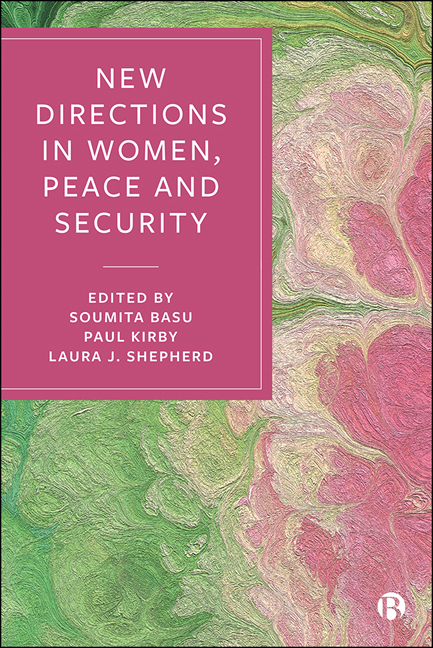12 - Human Trafficking, Human Rights and Women, Peace and Security: The Sound of Silence
Published online by Cambridge University Press: 12 March 2021
Summary
The Women, Peace and Security (WPS) agenda is rooted in international law – notably international humanitarian law, human rights and international criminal law. UNSCR 1325 specifically calls upon states to respect fully the obligations within these laws, including the Convention on the Elimination of All Forms of Discrimination against Women (CEDAW). Subsequent WPS resolutions emphasize the need for commitment to women's human rights and implementation of human rights law, without again referencing CEDAW until Resolution 2467 in April 2019 (UNSCR 2467, para. 18). Despite the evident association of subject matter, the first seven WPS resolutions after 1325 are surprisingly silent about trafficking in women and girls, including in armed conflict. Resolution 2467 does refer to trafficking in persons but only to ask the Security Council Counter-Terrorism Committee Executive Directorate to include in its country reports information about states’ efforts to address it (UNSCR 2467, para. 29). This does not comprehensively locate trafficking within the WPS agenda.
Since 2016, however, human trafficking has been addressed by the Council in UNSCR 2331 (2016) on trafficking in armed conflict, and UNSCR 2388 (2017) on the maintenance of international peace and security. Resolution 2331 marked the first time that the Council has addressed human trafficking and identified the existence of links between such trafficking – when committed under certain circumstances – and the maintenance of international peace and security, for which it has primary responsibility under Article 24 of the UN Charter. The resolution text indicates that this link emerges from the implication of terrorist groups in the trafficking of women and girls in conflict-related areas and from the fact that trafficking serves as an instrument to increase the finances and power of these organized criminal groups.
Resolutions 2331 and 2388 highlight the relationship between conflict and post-conflict situations and trafficking. They aim at tackling the use of trafficking as a terrorist and a war economy tactic by terrorist groups. They operate at the interface of three UN ‘agendas’: i) CEDAW and WPS (including the work of the Special Representative of the Secretary-General on Sexual Violence in Conflict established under UNSCR 1888 in 2009); ii) the fight against trafficking in human beings, the criminalization of traffickers and the protection of victims of trafficking; and iii) the Security Council's broader agenda for the maintenance of international peace and security.
- Type
- Chapter
- Information
- New Directions in Women, Peace and Security , pp. 189 - 206Publisher: Bristol University PressPrint publication year: 2020



